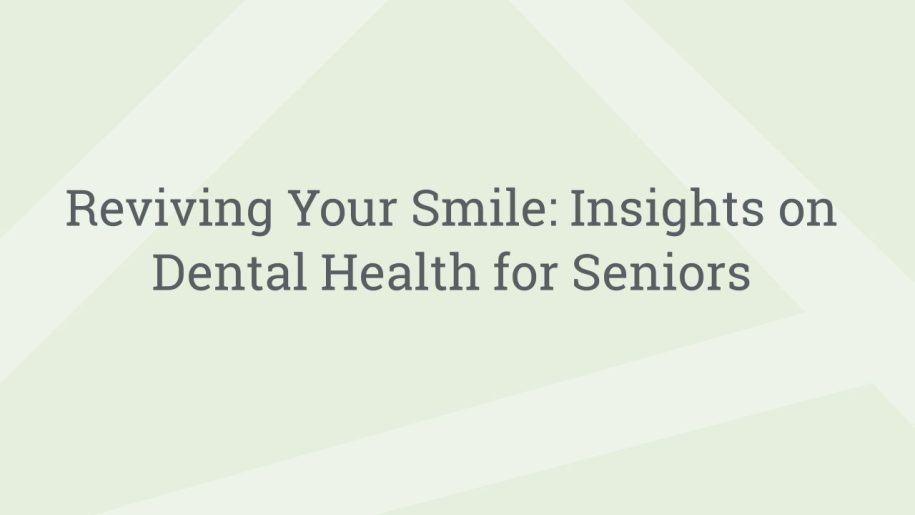Reviving Your Smile: Insights on Dental Health for Seniors
Table of Contents
Introduction: Why Fitness is Important for Women
As we age and our bodies change, it’s more important than ever to prioritize our health and fitness. Exercise not only helps us maintain a healthy weight and build muscle, but also helps reduce our risk of chronic diseases like heart disease, diabetes, and osteoporosis. In this blog post, we’ll explore the many benefits of regular exercise for women and provide tips for overcoming common barriers to working out.
The Benefits of Regular Exercise for Women
Regular exercise offers a plethora of benefits for women of all ages. From increased energy levels to improved mood and cognitive function, getting your body moving is one of the best things you can do for your health. Working out also strengthens your heart and lungs, improves flexibility and balance, and can even help prevent certain types of cancer. So whether you’re hitting the gym for a vigorous workout or simply going for a walk in the park, every bit of exercise counts toward achieving optimal health.
Building Muscle: How Strength Training Can Transform Your Body
Strength training in particular can have a profound impact on a woman’s body. Not only does it help build lean muscle mass, but it also boosts your metabolism and helps burn fat long after your workout is over. Women who strength train also enjoy a reduced risk of injury and improved posture, balance, and joint function.
Cardiovascular Health: Why Cardio Workouts are Essential for Women
Cardiovascular exercise is another important component of a well-rounded fitness routine. Activities like running, cycling, and swimming help improve heart health by increasing blood flow and oxygen delivery throughout the body. Cardio also helps lower blood pressure, reduce inflammation, and improve cholesterol levels, reducing your risk of heart disease.
Mental Health and Exercise: How Fitness Can Improve Your Mood and Reduce Stress
In addition to its physical benefits, exercise is also vital for maintaining good mental health. Regular physical activity has been shown to reduce symptoms of anxiety and depression, boost self-esteem, and improve cognitive function. Working out also helps reduce stress by releasing endorphins, the body’s natural feel-good chemicals.
Overcoming Barriers: How to Overcome Common Obstacles to Exercise
While exercise is undoubtedly important, it can be difficult to stay motivated and committed to a fitness routine. Common barriers to working out include lack of time, lack of energy, and physical limitations. Fortunately, there are many strategies for overcoming these obstacles, such as setting realistic goals, finding a workout buddy, and prioritizing self-care.
Finding Your Fitness Tribe: The Benefits of Joining a Community
Another way to increase your motivation and commitment to fitness is by joining a community. Whether it’s an exercise class, a running group, or a gym, being part of a fitness tribe can provide accountability, support, and camaraderie. Plus, working out with others is often more fun than going it alone.
Wearing the Right Gear: How Proper Workout Clothes Can Boost Your Confidence
When it comes to working out, what you wear is almost as important as how you move. Proper workout gear not only provides the necessary support and protection for your body, but it can also boost your confidence and motivation. Whether it’s a stylish new pair of leggings, a supportive sports bra, or a comfortable pair of sneakers, investing in quality workout clothes can take your fitness routine to the next level.
Nourishing Your Body: The Importance of a Healthy Diet for Optimal Fitness
Finally, it’s important to remember that exercise is just one piece of the puzzle when it comes to achieving optimal health. A healthy diet, rich in fruits, vegetables, lean protein, and healthy fats, is also essential for fueling your body and providing the nutrients it needs to function at its best. Eating a nutritious diet can also help you maintain a healthy weight and reduce your risk of chronic diseases.
A Lifetime of Fitness: Why Staying Active as You Age is Crucial for Long-Term Health
Finally, it’s important to view exercise as a lifelong commitment, rather than a short-term fix. As we age, our bodies change and our fitness needs evolve. Staying active as we get older is crucial for maintaining strength, balance, and flexibility, as well as reducing our risk for falls and other injuries. Remember, it’s never too late to start prioritizing your health and fitness.
Conclusion: Embracing Fitness as a Lifestyle Choice
In conclusion, exercise is one of the best things you can do for your health, both physical and mental. By incorporating regular workouts into your routine, eating a nutritious diet, and overcoming common barriers to exercise, you can achieve optimal health and wellness at any age. So what are you waiting for? It’s time to embrace fitness as a lifestyle choice and start reaping the countless benefits of a healthy, active lifestyle.
